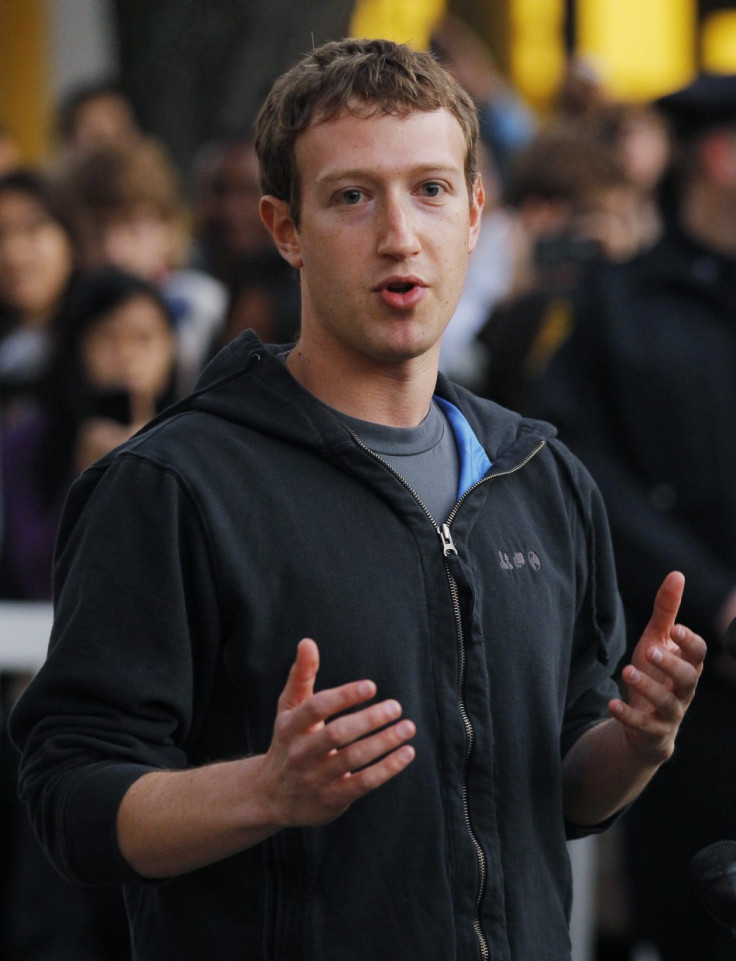Facebook Flotation: How 'Data Mining' Earns $1bn a Year

Advertising provided Facebook with 85 percent of its $1bn (£630m) revenue in 2011, meaing that the website relies heavily on its users to share as much personal information as they can.
Facebook makes money by selling advertising space to companies wishing to sell products and services to the site's users; almost all popular websites make money this way, but Facebook can offer a level of customisation that no other website can.
If a company wants to target men aged 24-30 who live in Manchester and have an interest in motorsport and television, then Facebook can tell the company exactly how many of its 845 million users fit that criteria and will be advertised to.
Facebook gets this information from the data that its users enter on their profile pages; their age, location, interests, job, educations and what they 'Like' is all used to target relevant adverts to users.
The social network generated £2.34bn in revenue from 2011 and 85 percent of that was from advertising, however this figure is down from 98 percent in 2009 and 95 percent in 2010.
The truth is that Facebook needs its users and their information to stay alive and, while is doesn't actually give advertisers your information, the site needs to know as much about its users as possible.
Sharing is also crucially important to Facebook; users are encouraged to share what they like, the music they listen to, the places they visit, the films they watch and the news stories they read.
Recently launched applications from Netflix, Spotify, the Guardian and others all contribute to adding data to what Facebook calls its social graph - a map detailing how everyone is connected.
Zynga games contributes to 12 percent of Facebook's revenue - a significant portion given that gaming is not Facebook's main selling point. The site states in its IPO: "In 2011, Zynga accounted for approximately 12 percent of our revenue, which amount was comprised of revenue derived from payments processing fees to Zynga's sales of virtual goods and from direct advertising purchased by Zynga."
Facebook adds that Zynga's applications generate a "significant" number of pages on which the site displays adverts from other companies.
The social network values Zynga's partnership so seriously that it accepts that a falling out with the gaming company could pose a serious problem.
"If the use of Zynga games on our Platform declines, if Zynga launches games on or migrates games to competing platforms, or if we fail to maintain good relations with Zynga, we may lose Zynga as a significant Platform developer and our financial results may be adversely affected," Facebook said.
The reason that Facebook earns good money from Zynga is because 30 percent of the gaming company's income is given to Zuckerberg's business. Explained in the IPO: "In May 2010, we entered into an addendum to our standard terms and conditions with Zynga pursuant to which it agreed to use Facebook Payments as the primary means of payment within Zynga games played on the Facebook Platform. Under this addendum, we retain a fee of up to 30% of the face value of user purchases in Zynga's games on the Facebook Platform."
A potential source of income is Facebook's mobile applications, which are available on most smartphones and tablets. Although they - and the mobile version of the website - are used by 425 million users, they don't currently display adverts or "directly generate any meaningful revenue".
In its IPO, Facebook admits that not generating revenue from its mobile apps and it plans to include advertising in the future: "We do not currently display ads to users who access Facebook via mobile apps or our mobile website."
Adding: "the number of ads that we deliver to users and our revenue may be negatively affected unless and until we include ads or sponsored stories on our mobile apps and mobile website"
Gartner analyst Michael Gartenberg told the International Business Times UK: "Given the large user base, that is actively engaged, there are a number of ways FB can further monetize the opportunities going forward. For example, mobile is now one of the most popular ways to access FB and it has hardly begun to explore revenue generation possibilities there."
The ad-funded model has seen its fair share of criticism; in 2007 many UK companies including Vodafone and Halifax bank removed their adverts from the site after it was found that they were appearing on pages of the far-right British National Party.
Facebook will need to broaden the ways in which it makes money if it wants to remain successful and live up to that $100bn valuation; it can't put all its eggs in one basket and rely on the advertising model to work forever.
© Copyright IBTimes 2025. All rights reserved.






















